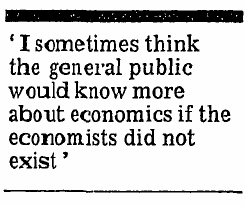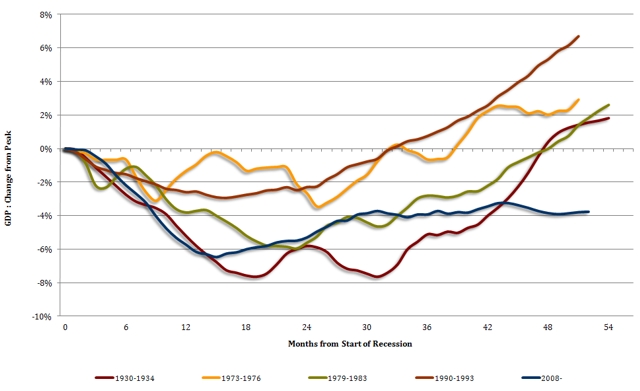My previous post “Not In My Lifetime” – The Muddled Road Toward An Integrated Europe had some responses – mostly saying I was too kind to Angela Merkel and Wolfgang Schäuble and that ceding powers to a supranational authority will lead to imposing of draconian rules!
Meanwhile I came across these two articles from France 24: Europe needs ‘reinforced political union’, says Merkel and Merkel rejects debt-pooling proposal ahead of EU talks. According to the first article:
“We need more Europe… a budget union… and we we need a political union first and foremost,” Merkel told German public television. “We must, step by step, cede responsibilities to Europe.”
My answer is while the German leaders have panicked and imposed severe austerity rules on nations due to pressures from the financial markets, their intention of having “More Europe” is certainly a good one. It took me a while to understand that it’s Germany which is open to having a full integration while others do not. There’s a lack of trust here, given what has happened over the past 2-3 years.
There are three ways to approach the crisis as I see it.
The first is to impose trade barriers on each other. This gives fiscal policy more room to expand domestic demand without running into a balance of payments crisis (again) and the European Central Bank can act as the lender of the last resort if it were to understand that the stocks of debts would be sustainable. However imposing barriers is against the philosophy of the “common market”. Hence this is ruled out.
The second is to coordinate a fiscal expansion with the ECB acting as a lender of last resort if needed. But how does this coordination happen and on what terms? This also requires institutions and will require summit after summit – if previous experiences are any guide.
The third is the German plan to have a supranational fiscal authority which is given the power to make expenditures and earn via taxes. In my opinion this is what Germany is looking for and not a small institution which is obsessed with balanced budgets and no fiscal powers. Of course if there is a supranational fiscal authority the nations may have to balance budgets(!) while this institution itself runs a deficit and is involved in substantial transfer of fiscal resources (quite opposite of what Charles Goodhart thinks!).
Economists such as Nouriel Roubini object to the German plan citing surrendering of sovereignty as the reason. It should however be noted that by signing the Maastricht Treaty Euro Area nations have already surrendered their sovereignty. Now, they could either cede more powers to “Europe” or (since there is a lack of trust) decide to break the Euro Area.
There are advantages of breaking up but it will be a terrible thing for Europe. It is also unclear how it can be implemented – given that at some level the Euro Area is integrated. With a lack of trust, this may be the best thing to do but in my opinion, it is the task of the European leaders to work toward gaining each others’ trusts.
The reason Angela Merkel has rejected the “debt pooling” plan of Herman Van Rompuy, José-Manuel Barroso, Jean-Claude Juncker and Mario Draghi (and also pushed by George Soros) is that it really does not solve anything except satiating the instant gratification wants of the financial markets. The Germans haven’t rejected the €-bonds per se.
Merkel’s plan – what’s called transfer union in Germany may meet with substantial opposition by German citizens. The Germans tend to think that they will be paying higher taxes without knowing that at the same time their incomes will be higher because the new union will be substantially less deflationary. A referendum may likely fail and this remains a challenge. The Euro Area needs an Alexander Hamilton as Ronald McKinnon argued recently.
My purpose of writing this post was to point out the in the media – especially the financial media – Germany is shown to be the villain. For example I think Wolfgang Munchau – who generally writes well said this in the Financial Times (The real victor in Brussels was Merkel)
The most important event last week was probably not the agreement at the summit anyway, but the statement by Ms Merkel that there will be no eurozone bonds “for as long as I live”. My belief is that this statement reveals she is not serious about political union, to which she has been paying lip-service over the past few weeks. Her tactics remind me of the “coronation theory” of the 1980s: the Bundesbank used to say that monetary union was acceptable but only after full political union was completed. It was another way of saying never. I always suspected all this talk about long-term solutions might be a ruse. Now, it seems, we know.
If Ms Merkel is right and there are no eurozone bonds in her lifetime, the eurozone will not survive. Without eurozone bonds or a change in ECB policy, Italy’s and Spain’s debt – and eurozone membership – is not sustainable. That was as true on Wednesday as it is today.
This is a slight misrepresentation of Merkel because she said that there will be no €-bonds in the plan presented in the last week’s summit (which didn’t have a common fiscal policy) and hence not without any qualifications.



